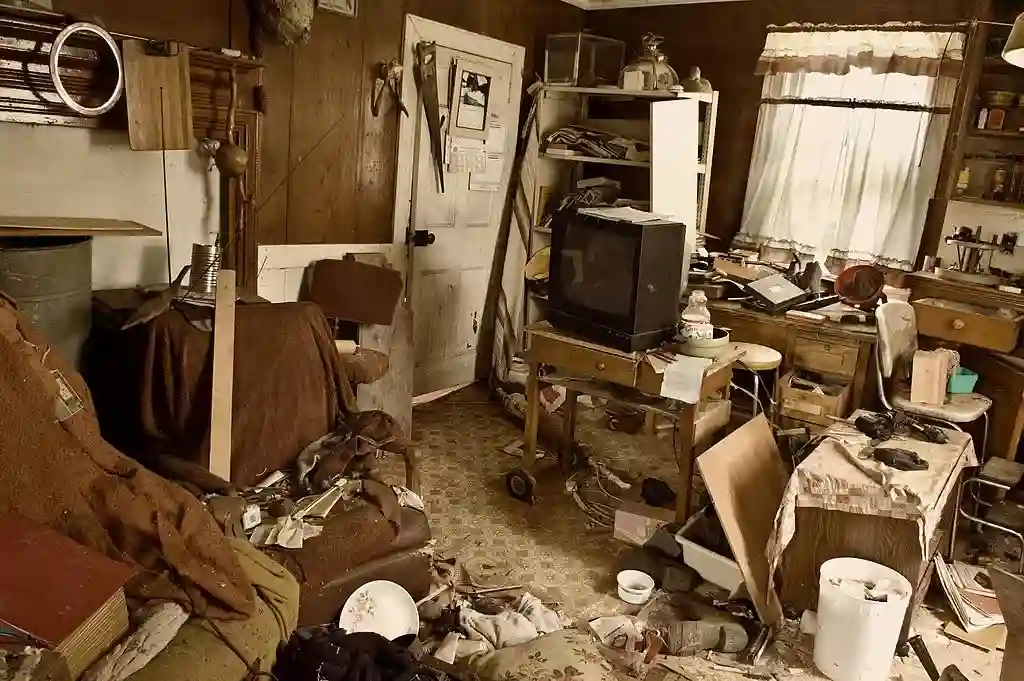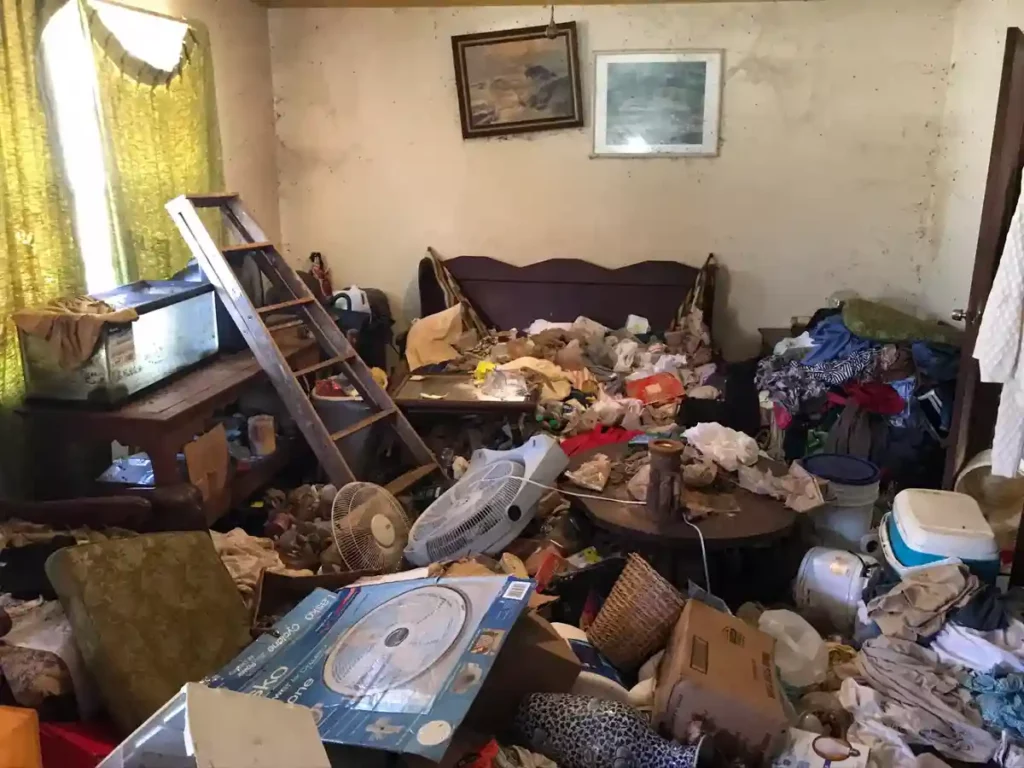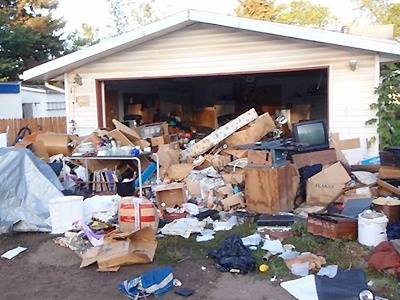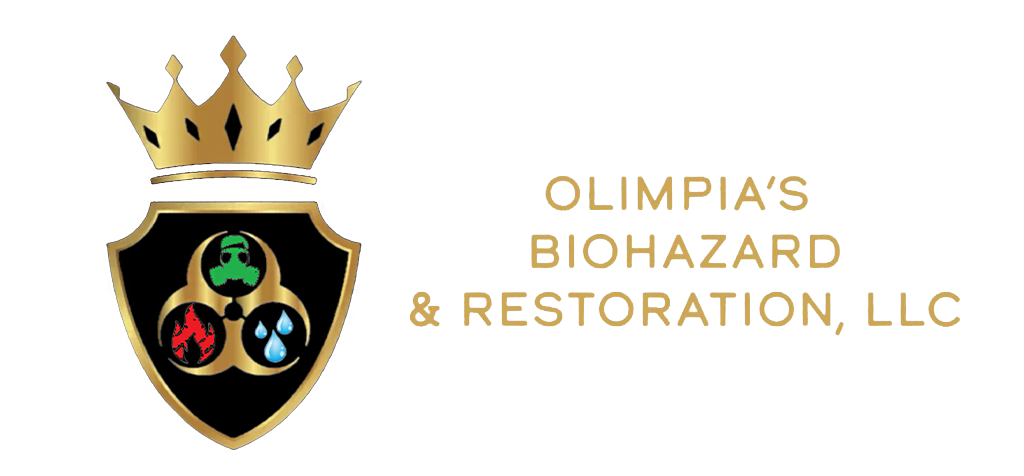Hoarding cleanup in Portland is a challenging endeavor, and it exacts a profound emotional toll on those involved. It’s not just about clearing clutter; it’s about addressing the complex underlying issues that drive hoarding behavior. The process often requires patience, empathy, and understanding as individuals navigate the distress of parting with possessions that hold deep sentimental value. Families, friends, and professional cleaners in Portland must grapple with the delicate balance of supporting the hoarder’s mental well-being while creating a safe and sanitary living environment. In this article, Olimpia’s Biohazard and Restoration will explore the emotional challenges faced by all parties involved in the demanding task of hoarding cleanup in the Rose City.
Attachment to Possessions:
You know, one of the most significant emotional hurdles in hoarding cleanup services, especially in a city like Portland, is the intense attachment hoarders have to their possessions. It’s not just about having stuff; these items often hold profound sentimental value. For some, each object is a piece of their personal history, a connection to happier times or loved ones who may no longer be around. Imagine having to part with things that represent cherished memories or a sense of security. It’s like saying goodbye to a piece of your life, and that can be incredibly painful. So, during cleanup, there’s this constant battle between the need for a clutter-free, safe space and the heart-wrenching struggle to let go of things that feel like a part of you.
Loss of Identity:
Another deeply emotional aspect of hoarding cleanup, especially here in Portland, is the loss of identity that some hoarders experience. It’s not just about getting rid of possessions; it can feel like losing a piece of who they are. Over time, these accumulated items become intertwined with their sense of self. So, when they have to part with them, it’s like shedding a layer of their identity. Think about it – if you’ve held onto something for decades, it becomes a part of your story. For hoarders, letting go can trigger a profound sense of emptiness and confusion about who they are without all those things. It’s a complex emotional battle that goes far beyond just cleaning up a cluttered space.


Anxiety and Depression:
Hoarding cleanup, especially here in Portland, often brings to the forefront the hidden battles of anxiety and depression that many hoarders face. These mental health challenges are like silent companions in their cluttered lives. When it comes time to confront the hoard, anxiety levels can skyrocket. The thought of parting with items they’ve held onto for so long, including common items found during hoarder cleanup, can be overwhelmingly distressing, leading to anxiety attacks and crippling self-doubt. On top of that, the depression that often accompanies hoarding gets intensified during cleanup. Hoarders might feel hopeless, trapped in a cycle of accumulation and despair. It’s essential to recognize that hoarding isn’t just about the physical mess; it’s deeply entwined with these mental health struggles, which require understanding and support to overcome.
Family Strain:
- Communication Breakdown: Hoarding often leads to communication breakdowns within families. Family members may struggle to understand the hoarder’s attachment to possessions, leading to frustration and resentment.
- Conflict and Tension: The cleanup process can be emotionally charged. Arguments and tension may arise as family members navigate the difficult decisions surrounding what to keep and what to discard.
- Role Reversal: In some cases, family members take on the role of caregivers, which can be emotionally taxing. They may feel like they’re parenting their own parent or sibling.
- Financial Stress: Hoarding can lead to financial strain on families due to the costs associated with cleanup, therapy, and potential property damage. This can exacerbate stress and strain relationships.
- Worry and Anxiety: Family members often worry about the hoarder’s safety and well-being. The constant concern for their loved one’s living conditions can lead to chronic anxiety.
- Resentment and Guilt: Family members may experience feelings of resentment for the hoarder’s behavior and guilt for not being able to “fix” the situation sooner. These emotions can be overwhelming.
- Isolation: Dealing with hoarding can lead to family members isolating themselves from friends and other family members due to embarrassment or shame.
- Burnout: The emotional toll of supporting a hoarder during cleanup can lead to caregiver burnout, impacting the family’s ability to provide ongoing support.
Judgment and Stigma:
One of the tough aspects of hoarding, especially here in Portland, is the harsh judgment and stigma that often surround it. Society can be pretty quick to label hoarders as lazy or careless, without understanding the complex emotional factors at play. Friends, neighbors, or even family members might gossip or make unkind remarks, unknowingly deepening the sense of shame felt by hoarders. This societal stigma can isolate hoarders even more, making it harder for them to seek help. It’s essential for all of us to recognize that hoarding is a mental health issue, not a character flaw, and to approach it with empathy and understanding rather than judgment.
Regret and Second-Guessing:
Regret and second-guessing are like constant companions in the world of process of hoarding cleanup. Picture this: you’re a hoarder, and you’ve just made the excruciating decision to part with some of your cherished possessions during the cleanup process. But as soon as those items are gone, it’s like a wave of doubt crashes over you. Did you make the right choice? Should you have held onto that old photo album or that childhood toy? These feelings of regret can be incredibly powerful, haunting hoarders long after the cleanup is over. It’s as if they’re stuck in a never-ending loop of questioning themselves and their decisions. Coping with this emotional rollercoaster is a significant part of the hoarding journey, both for hoarders themselves and those supporting them.


Professional Burnout:
Professional cleaners and therapists who work with hoarders in places like Portland face a unique emotional challenge – the potential for burnout. You see, their job requires a delicate balance between empathy and the need to maintain a clean, safe environment. It’s emotionally draining because they witness firsthand the intense attachment hoarders have to their possessions, as well as the anxiety, depression, and resistance to change that often accompany hoarding behavior. These professionals play a critical role in the cleanup process, but it can take a toll on their mental and emotional well-being. It’s a constant juggling act, and they must prioritize self-care to avoid burnout while providing the vital support hoarders need.
Relapse Fears:
- Constant Anxiety: Hoarders and their loved ones often live with a constant fear of relapse. The anxiety stems from the knowledge that even after a successful cleanup, hoarding tendencies can resurface.
- Triggers and Temptations: Certain life events or triggers can reignite hoarding behaviors. For example, the loss of a loved one or a stressful situation may lead to a relapse.
- Guilt and Shame: If a hoarder does relapse, they might experience overwhelming guilt and shame, which can further perpetuate the cycle of hoarding.
- Family Concerns: Family members who have supported the hoarder through cleanup may fear a relapse and worry about the emotional and financial toll it could take on everyone involved.
- Ongoing Therapy: To prevent relapse, hoarders often require ongoing therapy and support. The fear of discontinuing therapy prematurely can be a source of anxiety.
- Maintenance Challenges: Maintaining a clutter-free environment can be challenging for hoarders, and the fear of not being able to sustain it can be a constant worry.
- Support System: The presence of a strong support system is crucial in mitigating relapse fears. Hoarders and their loved ones rely on each other and professionals to navigate these anxieties.
Long-Term Support:
Long-term support is absolutely essential in the world of hoarding, and particularly in a city like Portland where hoarding cases are not uncommon. Hoarding isn’t a one-time cleanup job; it’s a journey that requires ongoing care and understanding. After the clutter is cleared, hoarders often need consistent therapy and counseling to address the underlying issues that drive their behavior. Family and friends also play a crucial role in providing emotional support, as relapses can happen, and maintaining a clutter-free space can be challenging. It’s a marathon, not a sprint, and it’s heartening to see that many communities, including Portland, recognize the importance of continued support networks for hoarders and their loved ones. It’s all about building a foundation for lasting change and emotional healing.
Celebrating Progress:
In the realm of hoarding cleanup, it’s essential to recognize and celebrate every bit of progress. Picture this: a hoarder in Portland, after months of hard work and therapy, manages to clear out a room that was once overflowing with clutter. To most people, it might seem like a small victory, but for the hoarder, it’s a monumental achievement. It’s a moment to acknowledge that change is possible, and that can be incredibly empowering. Whether it’s decluttering a single shelf or making a dent in a room piled high with stuff, these small wins are the building blocks of a clutter-free life. For family and friends, celebrating these milestones is a way of offering encouragement and reinforcing positive change. It’s a reminder that every step forward, no matter how small, is worth cheering for on this challenging journey towards a clutter-free and emotionally healthier future.


FAQ’s:
How do you get hoarders to clean up?
To get hoarders to clean up, a gradual and empathetic approach involving professional help, emotional support, and understanding their attachment to possessions is typically effective.
What is the fastest way to clean a hoarder’s house?
There’s no “fast” way to clean a hoarder’s house; it requires a structured, systematic approach, often involving a team of professionals, to ensure safety, minimize emotional distress, and address the root causes of hoarding behavior effectively.
Do the people on hoarders pay for the cleanup?
In the TV show “Hoarders,” the cleanup costs are typically covered by the production company, but in real life, hoarders or their families usually bear the expenses of professional cleanup services, which can be substantial.
How do you mentally help a hoarder?
Mentally helping a hoarder involves providing long-term therapy, emotional support, and patience to address underlying issues, build trust, and facilitate gradual decluttering.
What is the psychology of hoarding?
The psychology of hoarding is complex, involving attachment to possessions, fear of loss, emotional distress, and often underlying mental health issues like anxiety and depression.
CONCLUSION:
In conclusion, the emotional toll of hoarding cleanup in Portland is a multifaceted journey that encompasses the deep attachment to possessions, loss of identity, anxiety, and depression faced by hoarders themselves. It extends to the strain experienced by their families, the judgment and stigma from society, the constant fear of relapse, and the ongoing need for long-term support. Yet, within this challenging process, there are also moments of triumph and empowerment as progress is celebrated. Ultimately, addressing hoarding requires compassion, understanding, and a commitment to both the physical and emotional well-being of those involved. In Portland, like everywhere else, it’s a testament to the strength of the human spirit and the power of support networks in overcoming the emotional hurdles of hoarding cleanup.
